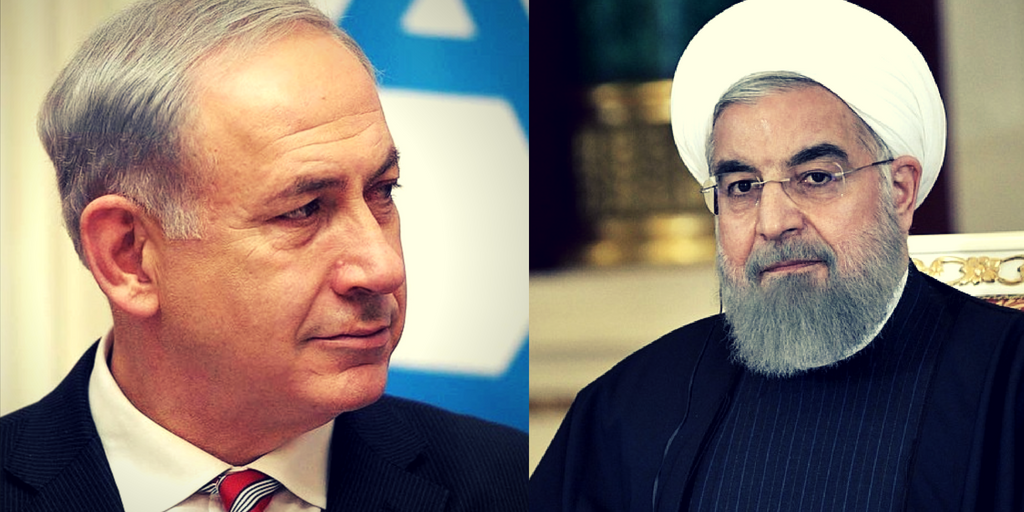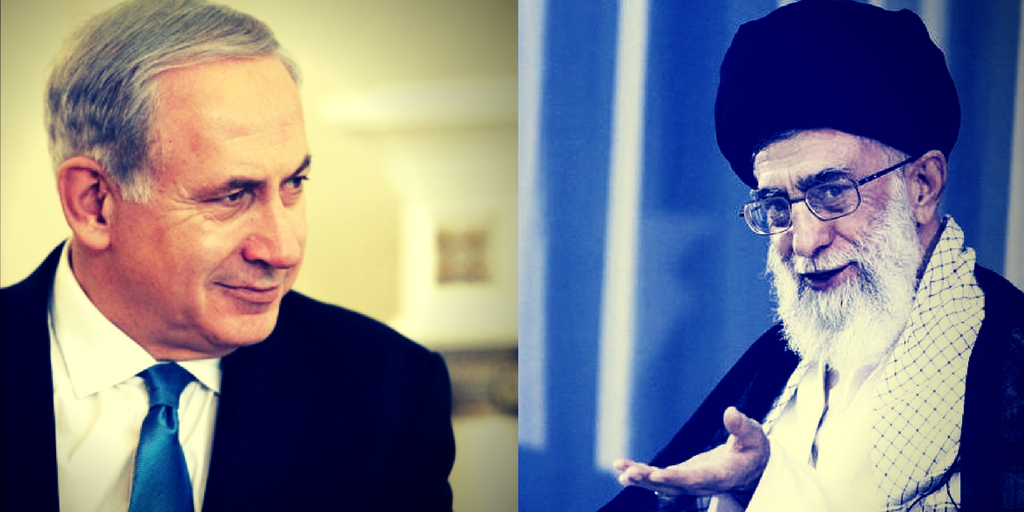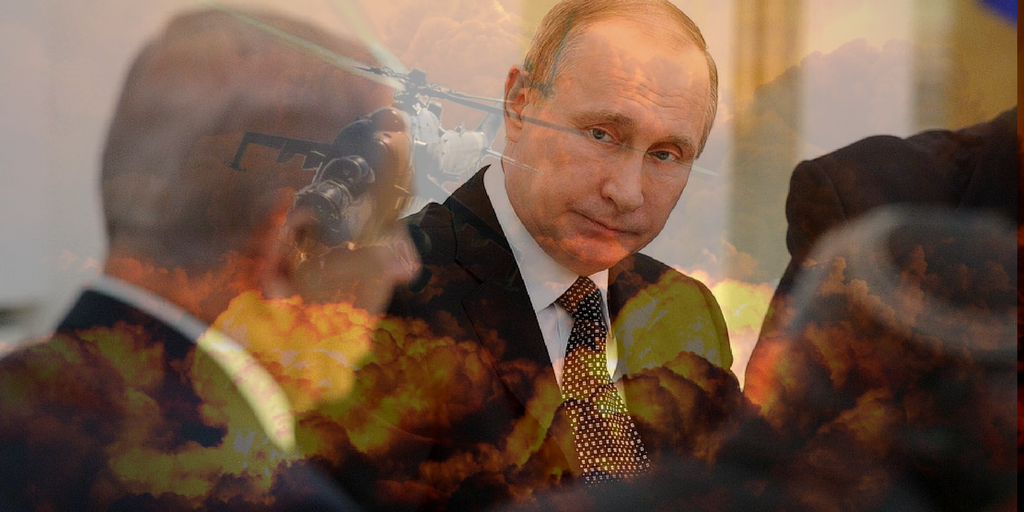Is Mueller colluding with the Muslim Brotherhood’s 9/11 backers?
There hasn’t been a sudden explosion of paranoia and fear about Russia like this since Sputnik.
In the ‘12 election debates, Obama had breezily dismissed Romney’s suggestion that Russia was the leading geopolitical threat. “You said Russia. Not al Qaeda. You said Russia,” he sneered. “And the 1980s are now calling to ask for their foreign policy back, because the Cold War’s been over for 20 years.”
Obama was nearly right.
Russia is a serious geopolitical threat, but despite Putin’s imperial ambitions and the malicious actions of a regime run by former KGB operatives, it falls far behind the threat posed by the People’s Republic of China. The Cold War is over and Russia lost. That may be of small comfort to Ukraine or Georgia, and the other former subject nations of the Soviet Union that it threatens, but it’s no real threat to us.
China isn’t our leading geopolitical foe either.
Obama mentioned Al Qaeda in his attack on Romney. The Islamic terrorist group was already largely irrelevant. But the terror kingdom behind it is more dangerously relevant than ever.
According to the intelligence community, Abdullah bin Khalid al-Thani, a member of the Qatari royal family, its former interior minister and minister of Islamic affairs, was an Al Qaeda sympathizer who had harbored Khalid Sheikh Muhammad. When the FBI arrived in Qatar to arrest him, the mastermind of the 9/11 attacks was transported away on a special Qatari government jet with blacked out windows.
And there have been suspicions over the years that Qataris played a larger role in 9/11.
But Qatar these days is far more of a threat than it was on 9/11. Its close ties to terror have made it a pariah nation in the region even as its support for Islamic theocracy crosses all factional lines.
It’s the main patron of the Muslim Brotherhood, an international Jihadist network, and has close ties to Iran. It spreads terrorist propaganda through Al Jazeera while subverting friendly governments. It seeks to influence American policy through think tanks like Brookings while spying on Americans.
Russia’s backing for the Shiite axis in Iran, Syria, Lebanon and Yemen has been destabilizing, but not nearly as destabilizing as Qatar’s backing for the Islamist militias that wrecked Syria, Yemen, Libya, Egypt and much of the region. Qatar’s Iranian allies may be the final winners of the Arab Spring’s humanitarian catastrophe, but it was Qatari propaganda and weapons that kickstarted the region’s unholy wars.
While Qatar’s Al Jazeera terror network undermined governments, the terror kingdom shipped massive amounts of weapons to its Islamic terrorist allies. The Obama administration colluded with Qatar’s arms shipments to terrorists by instructing NATO forces not to interdict these shipments which later ended up in the hands of Jihadists in Libya and Mali. Qatar bought weapons from the genocidal Muslim Brotherhood regime in Sudan, whose leader is wanted by the ICC for crimes against humanity, and shipped them to Jihadists in Syria through the terror state of Turkey.
Secretary of State John Kerry even winked at Qatar’s funding of Hamas, another genocidal Muslim Brotherhood regime. This is the sort of serious collusion that we should be discussing.
But while Qatar funds terrorists, its massive propaganda operation also attempts to influence Americans. The terror kingdom acquired Current TV from Al Gore for $500 million. But the terror network failed to attract viewers. Al Jazeera America was sued for fraud by Gore, and its female and Jewish employees began coming forward with accusations of sexism and anti-Semitism.
But while Al Jazeera America failed, Al Jazeera remains the world’s most influential hostile state propaganda service, far more so than Russia’s RT. And it hasn’t given up on influencing Americans.
Al Jazeera recently boasted of having sent in an operative to secretly record pro-Israel activists. The terror network dispatched letters to pro-Israel groups and it’s believed by some that their existence is being used to pressure figures in the Jewish community into playing along with Qatar’s public relations effort. If Russia were similarly spying on and blackmailing Americans, there would be outrage.
Unfortunately, Qatar has burrowed deeply into the media and the political infrastructure of the left.
Al Jazeera is not the only vector for Qatari propaganda. The
Brookings Institution, one of the most influential think tanks in the country, is subservient to Qatar. “[T]there was a no-go zone when it came to criticizing the Qatari government,” a Brookings Doha Center fellow revealed.
And then there’s The Intercept. The pro-terror site funded by a Persian billionaire has become notorious for its distribution of Qatari propaganda. The site, whose leading figure is Hamas apologist Glenn Greenwald, is a perfect forum for publishing smears, innuendo and even hacked documents. The Intercept frequently features attacks on the UAE, a Qatari rival, and Americans friendly to it, such as Jared Kushner, so that its contents appears to curiously echo those of Qatar’s PR and Al Jazeera.
Qatar’s influence operations took an ominous turn when Elliott Broidy, a top Trump donor, had his emails hacked by individuals he alleges were Qatari agents. The leaked emails play into Qatar’s conflict with the UAE. The emails have predictably popped up on Al Jazeera and Broidy had previously been targeted by The Intercept for a panel at which Steve Bannon had criticized Qatar.
“We have reason to believe this hack was sponsored and carried out by registered and unregistered agents of Qatar seeking to punish Mr Broidy for his strong opposition to state-sponsored terrorism,” Broidy’s spokesman said.
These two incidents of alleged Qatari espionage against Americans in order to influence our foreign policy raise serious questions. Yet the same media that obsessively searches for Russian bots on Reddit and Facebook seems entirely disinterested in discussing the subject. Skeptics of Russian influence have been told to put country ahead of party, but when will the left finally put country ahead of Qatar?
Perversely, instead of investigating the role of Qatar in influencing American elections, Mueller is reportedly taking the Qatari propaganda at face value and directing his investigation accordingly.
President Trump has been critical of Qatar. If Mueller uses Qatari opposition research to undermine a sitting president on behalf of a terror state, he will actually doing what Trump has been accused of.
Mueller had been accused of covering for the Muslim Brotherhood’s activities in America before. But now he risks being guilty of colluding with the Brotherhood’s Qatari backers to bring down an anti-Qatari president for the terror state that shielded the mastermind of the September 11 attacks.
There could be no greater act of treason than that.
Qatar’s domestic influence operation is far deeper and more dangerous than anything waged by Russia. Al Jazeera is infinitely more sophisticated than RT. The influence enjoyed by Qatar through Brookings has no Russian parallel. Its narrative on Yemen, Libya, Gaza, Burma and Egypt is the only story you will see in the media. The media in the United States hardly ever runs stories critical of Qatar anymore.
But if the latest allegations are true, Qatar’s terror backing and fake news operations have been supplemented by a domestic spying and blackmail operation against Americans.
And that cannot be tolerated.
Qatar is tiny compared to Russia. It’s a slave state of 200,000 masters and large numbers of foreign workers, many of them worked to death and treated little better than slaves. But yet it’s enormously wealthy and beneath its façade of moderation, it seeks to export Islamic supremacism around the world.
When we talk about Al Qaeda or Hamas, when you hear about the Arab Spring or the civil war in Yemen, when mention is made of the illegal invasion of Libya, the fighting in Syria, the real topic is Qatar.
Americans who collude with Russia should be held accountable. So should those who collude with Qatar.
And often they are one and the same.
Qatar, like Russia, is an ally of Iran. Like Russia, it arms and trains Islamic terror groups, seeks to undermine America, Israel and the West, and represents a major geopolitical threat.
Islamic terrorism is our leading geopolitical enemy. Its distribution and diversity makes it more difficult to pin down than the linkage between Communism and the Soviet Union. But the closest thing to the USSR of Islamic terror today is Qatar. When Democrats demand to know what Republicans are ready to do about Russia, Republicans should ask them what they are willing to do about Qatar?
Originally published on FrontPageMag.






